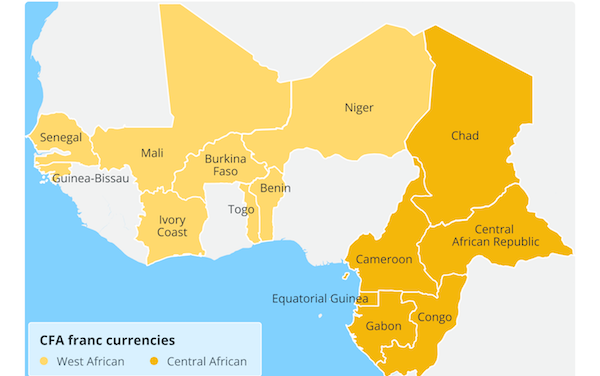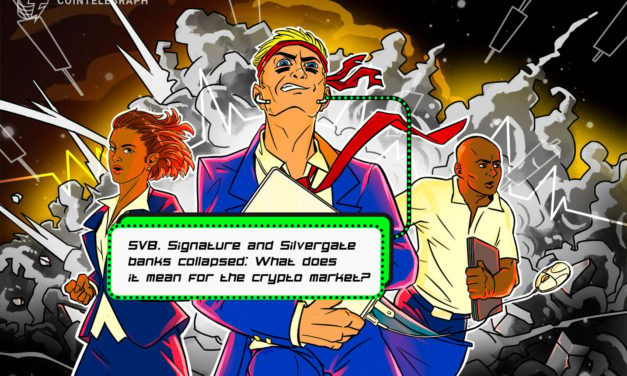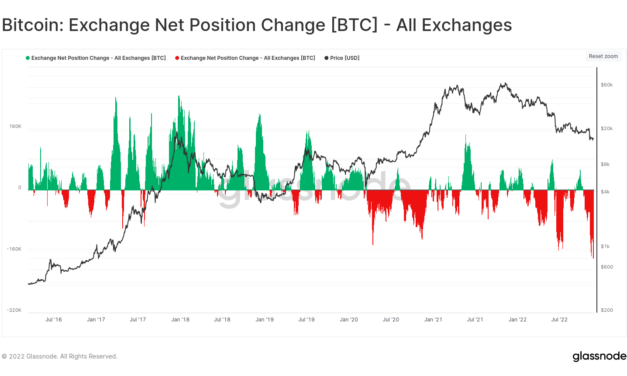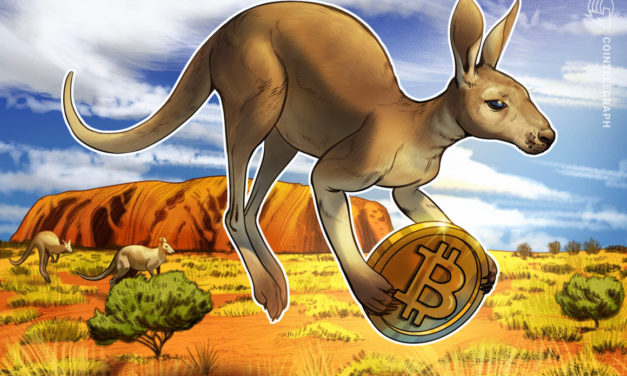Bitcoin in Senegal: Why is this African country using BTC?
Dakar, the capital of the West African nation of Senegal, now boasts an annual Pan-African Bitcoin conference, over 10 merchants accepting Bitcoin, a local peer-to-peer BTC exchange and a budding Bitcoin community.
What’s more, the speed at which Bitcoin’s progress is unwinding is staggering. The city hosted the DakarBTC Days conference just 10 months after the country’s first “in real life” Bitcoin meetup. All of this is despite a brutal bear market that has put a big dent in Bitcoin adoption.
Why is Bitcoin bubbling in Senegal? Is this country on the path to “hyperbitcoinization,” or at least more entrenched Bitcoin adoption and use? Could Senegal be the next country to follow in El Salvador’s footsteps?
I wanted to find out. I had missed out on the inception of Bitcoin Beach in El Salvador in 2019, so I wanted to explore what a bottom-up, Bitcoin-circular economy might look like in West Africa. This is that story so far.
A colonial currency
The West African Economic and Monetary Union CFA franc is an awful currency. The French created it; they control its conversion rate; they even design and print the notes for use in Africa. A Frenchman sitting in the historic university town of Clermond-Ferrand conjures up the designs in use on CFA notes used by millions of Africans across 13 countries — despite the fact that they might never have set foot in Africa.
The CFA is currently pegged to the euro at a fixed rate of 655.957 to one. In 1994, the peg with the former French franc was slashed from 1:505 to 1:100. The currency devaluation, instigated by France and in collaboration with the World Bank and the International Monetary Fund, wiped out the savings of the Senegalese people. To cap it all off, French officials sit on regional central bank boards across French-speaking Africa and still hold substantial powers, including veto rights.
Alex Gladstein of the Human Rights Foundation once explained, “Unlike a typical fiat currency, the system was far more insidious. It was monetary colonialism.”
From Cuba to Turkey, South Africa to Serbia, I have never seen a greater demand or need for monetary emancipation than in Central or West Africa, and the most likely candidate for West Africa’s economic and monetary freedom is Bitcoin.
Making lightning connections
On Twitter in January 2022, I noticed that a few bars in the ex-pat area of Dakar have begun accepting Bitcoin. You can pay for a crêpe or a bissap (a refreshing local drink made with hibiscus flower) over the Lightning Network, at a spitting distance from the beach.
My thoughts immediately go to El Salvador’s grassroots adoption initiative, Bitcoin Beach, the efforts of which culminated in Bitcoin becoming legal tender in El Salvador. I know at once that I must speak to the person behind these efforts.
A tall, softly-spoken Senegalese man who spent a chunk of his professional life working in France, Nourou (not his real name), is a Bitcoin advocate like no other.
Nourou points to the wings of Africa during an interview.
He returned to Senegal in 2021 and was disappointed to see that his friends and even family members had lost money to “Ponzi schemes like Petronpay — things like that — or limo” and other popular crypto scams in Africa. “So, we set up the Bitcoin in Senegal community,” he tells Cointelegraph.
“I was the first one in our first e-meet on Clubhouse. We were maybe three or four, but I kept going with two sessions per week, then one session per week because we used to have 10, 20 […] sometimes hundreds of people listening in.”
He arrived in Senegal at the onset of COVID-19. However, the pandemic chaos did not dash his dreams of making Bitcoin the go-to currency in his homeland.
Read also
Features
E For Estonia: How Digital Natives are Creating the Blueprint for a Blockchain Nation
Features
Crypto mass adoption will be here when… [fill in the blank]
Peer to peer
While traveling in Senegal in February 2022, I attended the country’s first-ever Bitcoin meetup. Not only was this a milestone event in of itself — as previously meetups were conducted online or on the application Clubhouse — but the caliber of the guests in attendance is jawdropping.
The room is brimming with nonfungible token promoters, Bitcoin maximalists, entrepreneurs, central bankers and even professors from Dakar’s most prestigious universities. The atmosphere is a stark contrast with the Bitcoin meetups I usually attend in Europe or America, where, to be frank, it’s a bunch of white Millennial males preaching the fall of fiat currencies.
Senegal’s first in-person BTC meetup in February 2022. Nourou is second from right, while I am fifth from left (back row).
I also see Nourou onboard three more restaurants onto the Bitcoin network. Interestingly, a lot of these merchants use Bitcoin in its purest form: a peer-to-peer cash system.
They accept Bitcoin-based or Lightning transactions, and they hold onto it with the intent of using Bitcoin as money in a circular economy. Nourou is building an app that allows merchants to cash out into local currency and offers a personalized service where they can get their hands on cash if need be.
I left Senegal in March 2022 with a spring in my step. I felt inspired by the fact that, in the places that need it most, there are enthusiastic Bitcoin people devoting their time and efforts to educating others about money and, ultimately, Bitcoin.
Now, fast-forward to August 2022, and I couldn’t quite believe that Nourou is texting me, saying he had plans to host a Bitcoin forum in Senegal. It will be the first time that Bitcoiners from all over the world would assemble on the African continent to share their passion for Bitcoin and strategize how best to adopt the currency.
I vowed to myself that I absolutely must attend. Not only is this a country that I’m increasingly attached to but I fully want to observe, participate and report on the Bitcoin movements in Senegal and greater West Africa.
Dakar Bitcoin Days
Dakar Bitcoin Days gathered enthusiasts and economists from across Africa, in a pan-African celebration of magic internet money. From Cameroon to the Congo, Mali to the Ivory Coast and the Central African Republic, there were interested parties from all over the continent. As Nourou says in an interview while pointing at the continent of Africa, “Africa will fly if we all go together.”
With Nourou backstage ahead of the start of the conference.
France is the official language in Senegal, while Wolof is by far the most widely spoken. One of the unique and well-thought-out aspects of this conference is that there are Dakar Bitcoin Days talks in three languages — English, French and Wolof — with events in the latter attracting the highest attendance.
The conference features beginner-friendly seminars that touch on the economy, finance, security and Bitcoin fundamentals. For experts, panels on cryptography take place, while debates such as “Is Bitcoin Halal?” provide cultural insights into using Bitcoin in Senegal, a 97% Muslim country. Plus, the demographics skew incredibly young: The average age in the country is roughly 19 and the conference is brimming with students and young people.
During the conference and in conversations, Nourou shares his vision for Senegal with me. Senegal will lead West Africa out of the darkness of currency colonization, he explains. However, there needs to be a level of decentralization in the messaging regarding Africa:
“I want the message to switch. Africa is not a country — it is a continent. That’s why we call it Dakar Bitcoin Days: If you come to Senegal, you will meet Senegalese; if you go to Mali, you meet Mali people.”
There might be some similarities, such as some shared histories and overlapping cultures in Africa, but he explains that Africa is just as varied or more than Europe. Much like Bitcoin, the movement is decentralized. Each region and area of Africa will eventually run with and adopt Bitcoin.
That’s not to take away from the tremendous sense of Pan-Africanism that Africa benefits from. It’s something that that Europeans or Americans as a continent may not relate to. I am British and European, but I do not relate with a Serbian the way that a Senegalese may relate to a Zimbabwean, despite being thousands of miles apart.
Read also
Features
Insiders’ guide to real-life crypto OGs: Part 1
Features
Designing the metaverse: Location, location, location
Bitcoin in Senegal
During the conference, I also set out to interview merchants who accept Bitcoin. I speak to the owner of a French ex-pat bar that has recently begun accepting Bitcoin. Despite being completely new to decentralized currency, the proprietor, Gary, is happy to see new customers coming to his bar thanks to Bitcoin. While we were there, we managed to convince him to accept Bitcoin at his brand-new tattoo parlor.
A tattoo parlor now accepting BTC.
Senegalese surf team coach Renée Laraise managed Praïnha, the first restaurant to accept Bitcoin. As one of Senegal’s best sporting exports after football (Senegal won the African cup of Nations in 2022), he’s a leader and a trusted voice in the community.
I also interview Mama Bitcoin, who has been trading Bitcoin for fish on the Atlantic coast for the past three years. It’s a visionary move in a country where cash reigns king and banking services are generally for the financially privileged. Banks in West Africa charge high fees and incur strict user requirements: Withdrawing cash, for example, can cost a few dollars.
Throughout my second trip to Senegal, I give out Bitcoin to more than 70 people. The process is simple: I ask them to download a Lightning wallet, usually Wallet of Satoshi, and they tap receive.
The wallet is custodial, meaning they don’t actually hold the keys to their Bitcoin. As a result, they are trusting that Wallet of Satoshi will not perform a Sam Bankman-Fried and run off with the funds, but for newbies, I think it’s a great place to start.
I send them a few thousand satoshis, which is maybe a dollar or two in Bitcoin. I find it easy to hand out sats in Senegal in comparison with other countries to which I travel. People are eager to get hold of money, and they are eager to learn, trade or simply save with a currency that cannot be debased or stolen in the way that the CFA can.
I give away free Bitcoin to conference-goers. As you can see from onlookers smiling away, it became part of the conference’s entertainment.
I gave away sats on the beaches, on the sidewalk, during the conference, in restaurants and bars, to taxi drivers, and in tips to the hotel staff.
For the most part, I give Bitcoin to young people, boys and girls aged anything from 16 upward and young men. Whereas the average age in the United States is about 40, Senegal is a very young population. It’s no surprise that a mobile native, internet-based currency would fly if it was given the right to take off in Africa.
It makes me wonder, Why are people so keen to get hold of Bitcoin here? Well, it’s because, in the West, we buy Bitcoin through exchanges; a select few individuals buy peer-to-peer, and a tiny slither of Bitcoin enthusiasts actually earn Bitcoin. In West Africa, it’s very hard to get your hands on the coin.
Worse still, it’s very hard to secure Bitcoin. None of the established hardware wallets like Ledger, Trezor or ColdCard ship to Senegal. Ledger sponsored the conference and may start shipping to West Africa, but it’s currently a serious pain point.
In light of these barriers and opportunities, it gives greater credence to the idea that a Bitcoin-circular economy could take off in Senegal. People want Bitcoin; there are no exchanges to buy from, and international tourists coming to Senegal can spend Bitcoin. Bitcoin could, therefore, tread a path to becoming peer-to-peer money, as its white paper intended, in the country.
Mobile money meets Lightning
Plus, mobile money networks have taken root and flourished across Africa. First rising to fame in Kenya, where the globally recognized mobile money company M-Pesa was founded, mobile money companies have popped up across Africa like Apple Stores in European cities. Most Africans nowadays have a smartphone — they might not have regular electricity or access to free drinking water — but they can get online.
Failing that, it is highly likely that individuals possess an SMS mobile phone: an old-style phone that can send and receive texts. Thanks to mobile money, users can send and receive payments much like a bank transfer. You can simply text your friend’s phone with credit. In Senegal, the biggest mobile payments company is called Wave.
The Wave logo is found in taxi companies, restaurants, bars and cafés. It’s a bit like the Lightning Network, but it’s slower, a lot more expensive, and it uses local currency.
I try to track down an employee at Wave to orange-pill them — and introduce them to the Bitcoin network — and as luck would have it, I bump into one in a bar while watching the World Cup. I immediately ask him to download a wallet and sent him some Bitcoin. The internet connectivity was very patchy where we sat, so it wasn’t the best, and it took a few seconds, cue “Network Error.”
I connect to the bar’s WiFi and send him the Bitcoin. He was impressed and said he’d come along to the conference the following day, but I didn’t see him again.
There was a funny moment during the interview with the marketing director from Wave. He shared that he met and hung out with Satoshi in Senegal. Apparently, he was a VC kind of guy who went around, drunk as a skunk, partying and investing in companies.
The face you make when someone says they know Satoshi.
However, it gets me thinking — you have a country that is accustomed to transacting via mobile phone, using nothing but a mobile number. That’s despite the fact that the UX for mobile money is quite clunky. Yet everyone and their goat (yes, I try to interview a goat about Bitcoin — see our documentary), knows how to use it.
Senegal has a power-sapping currency, a young, digitally native population, Bitcoin leaders and mentors in respected positions in society, an annual conference, an increasing number of merchants accepting Bitcoin, and as evinced: It is culturally acceptable to send money via mobile phones.
It’s another instrument in Africa’s Bitcoin toolbelt and a way in which the continent could effectively leapfrog the developed world. Why can’t we leapfrog mobile money with the Lightning Network?
Subscribe
The most engaging reads in blockchain. Delivered once a
week.
Joseph Hall
Čítaj viac






